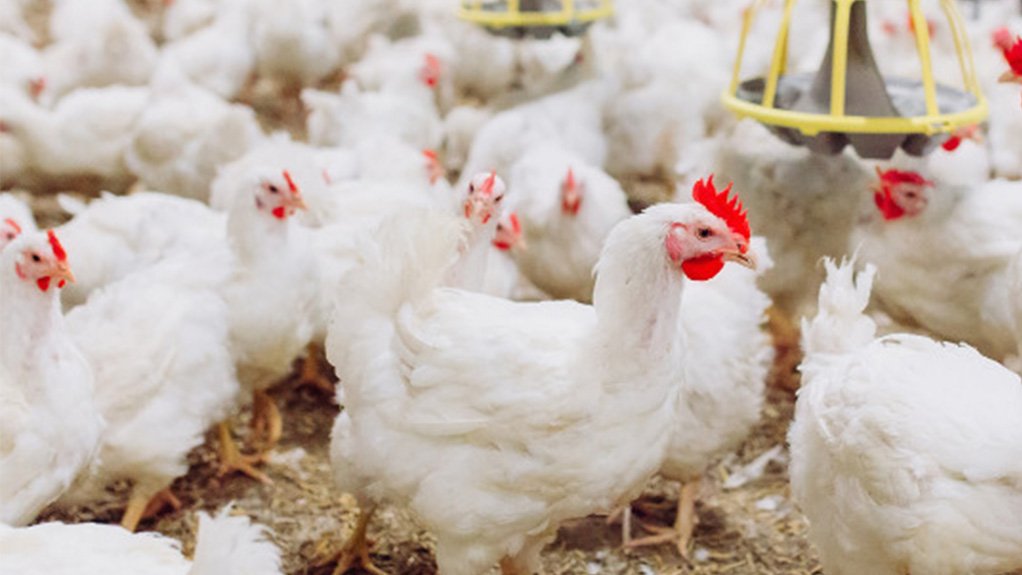The SA government plans to fast-track the use of vaccines to fight bird flu as virulent strains of the disease sweep across SA's poultry sector.
Making the announcement in a statement on Monday night, the Department of Agriculture, Land Reform and Rural Development (DLARRD) said it had met with vaccine registration regulators and reached an agreement "that the registration of vaccine will be fast-tracked".
The department said it has also assisted in importing fertile eggs for the broiler industry. "(A) similar request for the table eggs will be considered if received."
While the H5N1 avian influenza virus first emerged back in 1996, World Health Organisation researchers found that it became much more infectious since mid-2021 and rapidly evolved as it spread from Europe into North America. In the US, it resulted in the death of 60 million farmed birds.
"This virus is not being static, it's changing," Richard Webby, the head of a WHO collaborating centre studying influenza in animals, recently told AFP.
"That does increase the potential that even just by chance" the virus could "pick up genetic traits that allow it to be more of a human virus," he said. Webby said the fact that the virus has also been detected in a soaring number of mammals – including sea lions, penguins, dolphins and otters – was a "really, really troubling sign".
The H5 variant is dominant in the Western Cape and KwaZulu-Natal, with almost 1.3-million birds culled or killed due to the strain.
But Gauteng is hardest hit by a new local, virulent H7 strain, which according to the South African Poultry Association (SAPA), is not found anywhere else in the world. H7 outbreaks were also being reported in Limpopo, Northwest, Free State and Mpumalanga. It estimated that more than 1.4-million birds had been culled or killed by the H7 strain.
The department said as of 21 September, the country was dealing with a total of 50 outbreaks of H7 and 10 outbreaks involving the H5 avian influenza strain. A total of 37 of the H7 cases were in Gauteng.
Astral Foods, the country's largest poultry producer, warned late last week of a shortage of table eggs and poultry meat in the coming months.
Last year, China and Vietnam started to vaccinate chickens against bird flu using locally produced vaccines. Vaksindo, an animal vaccine manufacturer in Indonesia, has also developed a vaccine. Earlier this month, the Netherlands launched a trial programme to vaccinate one-day-old chickens against bird flu. Following successful vaccination trials earlier this year, France launched a vaccination campaign for farmed ducks, using a vaccine developed by German company Boehringer Ingelheim, this month.
The US Department of Agriculture has also been testing different potential poultry vaccines. Moderna, CSL Seqirus and GSK are developing vaccines.
The South African department of agriculture said there would be no compromise on the safety and quality of the vaccinations used because of the inherent risk of the disease spreading to humans.
"Due to the high probability of (the) avian influenza virus mutating and becoming zoonotic [transmitted from animals to humans], care needs to be taken on the quality and efficacy parameters of the vaccine chosen for use in this exercise."
It said the criteria under which a vaccination would be permitted was almost in its final development, adding only farms with good biosecurity and those approved by the department would be given permission to vaccinate.
"The other requirements for vaccination will be surveillance to enable early detection of incursion and mandatory slaughter of vaccinated chickens. The department further encourages all producers to intensify their biosecurity measures on the farm. The basic measures should aim at preventing contact with wild birds, including their faecal material which can be transported in boots and equipment."
EMAIL THIS ARTICLE SAVE THIS ARTICLE
To subscribe email subscriptions@creamermedia.co.za or click here
To advertise email advertising@creamermedia.co.za or click here











